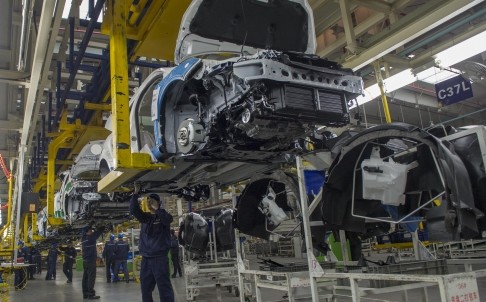As the world’s largest car manufacturing industry competes for drivers who demand high technology components, Ford Motor Co. urges Tencent Holdings Ltd. to customize and pattern its sought-after app called WeChat for the firm’s cars in China.
According to Ford Asia Pacific’s senior engineer David Huang, there is an existing demand from their consumers, in view of the fact that people nowadays value constant connectedness and entertainment even when they are on road.
In a complementary statement, Yale Zhang, the managing director of consultancy Automotive Foresight in Shanghai, asserted that connectivity was a major and fundamental consideration among Chinese customers when they are purchasing automobiles.
It is well known that China holds the most number of smartphone users, with WeChat as their leading choice among the various selections of chatting applications. In lieu of phone calls, the free voice messaging feature of WeChat is a Chinese favorite, as it allows them to conveniently hold their mobile phones as they speak and listen to replies.
Huang stated that Ford visualizes car users to synchronize their mobile phones to the car’s software and to control WeChat functions, certified by Ford as safe through voice commands or use of buttons.
Making apps such as WeChat a convenient and legal device to use while driving can be a lucractive area of development for car manufacturers.
According to a statement from a Beijing resident who claims that she holds her phone while driving, automobile software that works with a high-tech application such as WeChat is indeed functional.
Signaling a positive competition, a spokeswoman for Nissan declared that her company also wants WeChat to operate in their cars in the future.
Additionally, Daimler, which owns Mercedes-Benz, is also exploring the possibilities of including apps and other services from Tencent, Baidu and Alibaba in its cars, according to China head Hubertus Troska.



























